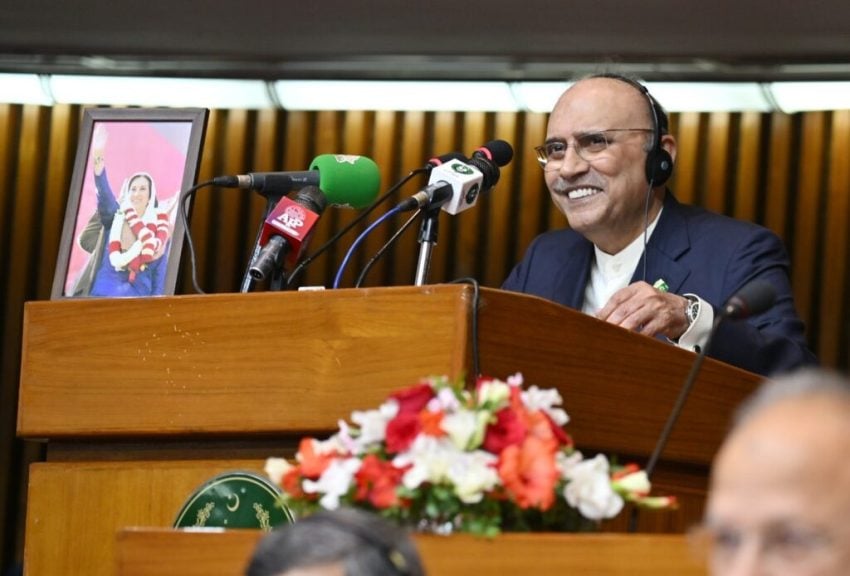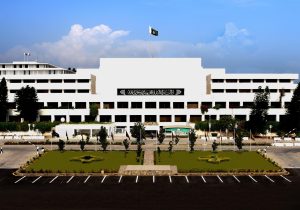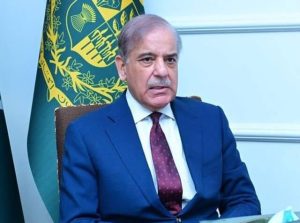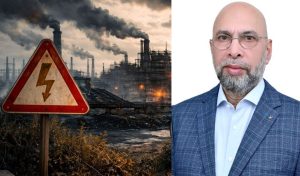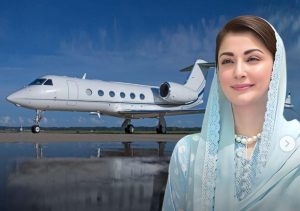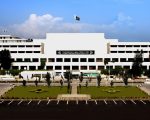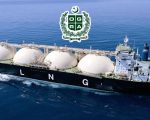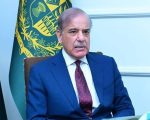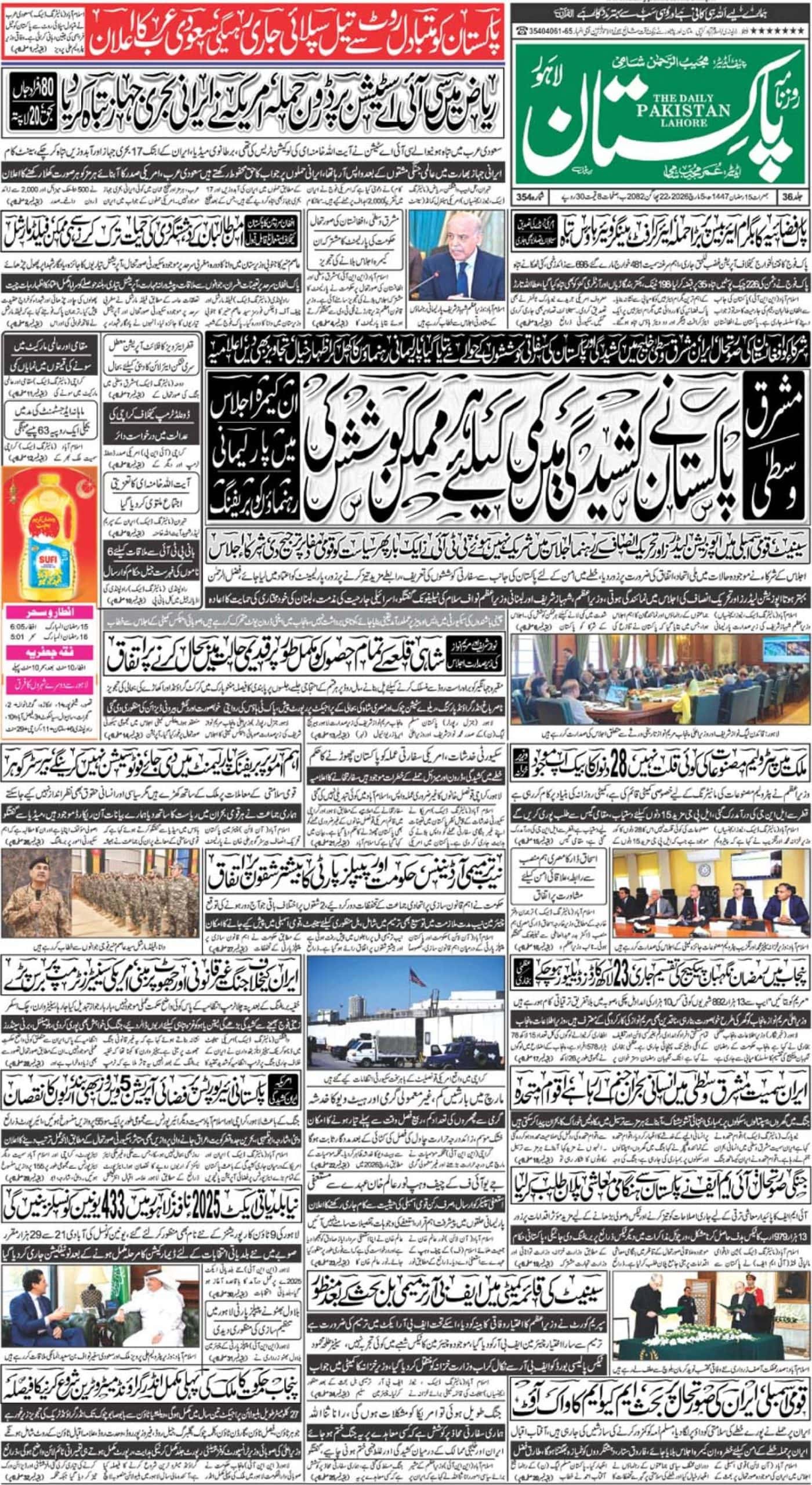ISLAMABAD – President Asif Ali Zardari, in his address to the joint session of Parliament at the beginning of the 2nd parliamentary year, emphasized the need for empowering the people, making national decisions with consensus, encouraging both domestic and international investments for economic growth, fostering social and economic justice, and ensuring transparency in the system.
He urged the parliament to focus on promoting good governance and political and economic stability. “Our people have pinned their hopes on parliament, and we must rise to meet their expectations. We need to work harder to strengthen our democratic system, restore public confidence in the rule of law, and put Pakistan on the road to prosperity,” the president stated.
As the only civilian president to address the joint session for the 8th time, he stressed the House’s responsibility in nation-building, strengthening institutions, and improving governance. He highlighted the need to reform the taxation system, expanding the tax net without overburdening existing taxpayers, and ensuring everyone contributes to nation-building.
President Zardari called for measures in the upcoming budget to increase salaries and pensions, reduce income taxes for the salaried class, and lower energy costs to ease the financial burden on citizens. He discouraged job cuts, instead advocating for job creation and productive use of trained manpower.
He emphasized inclusive development, urging the House to ensure no province, district, or village is left behind. “Development should reach every corner of the country. Neglected areas demand urgent attention from the federal government,” he said. Investments in infrastructure, education, healthcare, and economic opportunities were necessary to address deprivation.
The president stressed diversifying exports by focusing on value-added goods and services. He encouraged building a competitive export-oriented economy by boosting the IT sector. “We must invest in digital highways, IT parks, and internet accessibility to drive economic growth,” he added.
Highlighting the importance of small and medium enterprises (SMEs), he pushed for easier access to credit, reducing bureaucratic hurdles, and creating youth-led business policies. He called for supporting youth through SME programs, skill development initiatives, and accessible loan schemes.
President Zardari urged the House to improve the ease of doing business, making Pakistan an attractive destination for investors. Recognizing the economic hardships faced by citizens due to inflation and rising energy costs, he called on the government to provide real relief.
Empowering women was another key point, with the president noting their under-representation in various sectors despite making up 50% of the population. He stressed expanding the Benazir Income Support Programme (BISP) to enhance financial independence for women.
For the youth, the president emphasized promoting higher education, research, and ensuring every child attends school. He urged the government to increase education sector funding, provide scholarships, and boost financial assistance programs.
Regarding healthcare, he advocated for quality healthcare access, tackling malnutrition, and improving polio vaccination efforts. “Primary healthcare must be a priority,” he added.
On governance, the president called for ministries to redefine their goals and deliver solutions within set timeframes to restore public trust in democracy. “Democracy needs give and take. This parliament must work collectively for national unity and consensus,” he said.
He highlighted the need for balanced economic growth, praising the government’s efforts in boosting foreign exchange reserves, increasing Foreign Direct Investment (FDI), and reducing the policy rate. Stressing regional connectivity, he emphasized modernizing transport infrastructure, roads, and railways, especially in Gilgit-Baltistan and Balochistan.
Discussing CPEC, he called for fully realizing its potential to position Pakistan as a trade gateway linking Central Asia, South Asia, and the Middle East. He urged the government to strengthen agriculture by adopting modern techniques, developing better seeds, and increasing water efficiency.
Addressing climate change, he advocated for renewable energy, electric vehicles, and wetland restoration. He highlighted Sindh’s success in planting 2 billion mangroves, suggesting replicating this model to benefit from international carbon credits.
On security, he stressed combating terrorism by strengthening law enforcement and countering extremist ideologies. “Thousands of our security forces have sacrificed their lives, and we must unite against terrorism,” he asserted.
Regarding foreign relations, he reaffirmed Pakistan’s commitment to regional peace and economic cooperation, emphasizing strong ties with China, Saudi Arabia, UAE, Turkiye, and others. He voiced unwavering support for the Kashmiri and Palestinian people, urging the international community to act against human rights violations.
In conclusion, President Zardari called on parliament and the government to work together, rise above personal interests, and build a just, prosperous, and inclusive Pakistan. He emphasized that progress and development should be equally shared among provinces, ensuring every citizen benefits from national growth.

